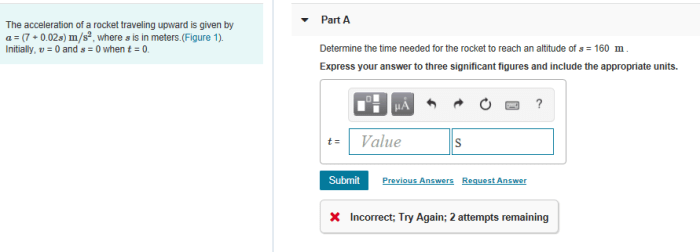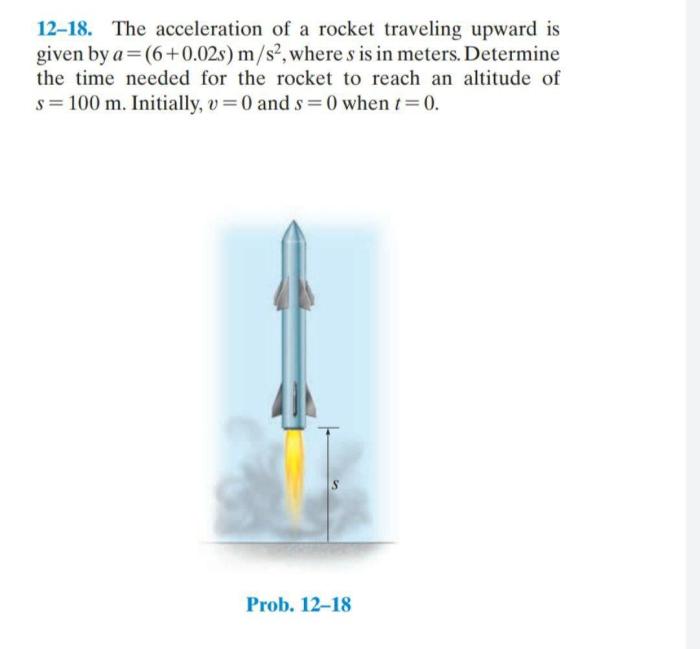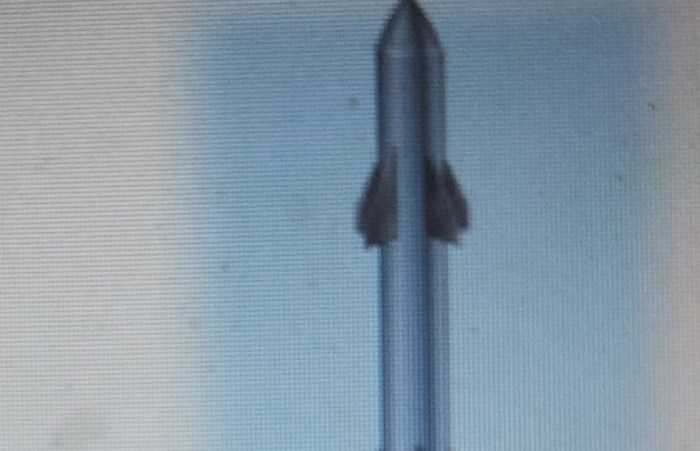The acceleration of a rocket traveling upward is given by a complex interplay of forces, mass, and environmental factors. This intricate dance determines the rocket’s trajectory, velocity, and ultimately its ability to transcend the Earth’s gravitational pull. Our exploration delves into the intricacies of this fascinating phenomenon, unraveling the fundamental principles that govern the acceleration of rockets.
Thrust, generated by the expulsion of propellant, provides the impetus for a rocket’s upward motion. The mass of the rocket, including its fuel, payload, and structural components, plays a pivotal role in determining its acceleration. As the rocket ascends, it encounters varying atmospheric conditions and gravitational forces, further shaping its acceleration profile.
Acceleration of a Rocket: The Acceleration Of A Rocket Traveling Upward Is Given By

The acceleration of a rocket traveling upward is a measure of how quickly its velocity changes over time. It is caused by the thrust produced by the rocket’s engine, which pushes the rocket upward against the force of gravity.
Thrust and Mass, The acceleration of a rocket traveling upward is given by
The thrust of a rocket is the force that propels it upward. The mass of a rocket is the total amount of matter it contains. The acceleration of a rocket is directly proportional to the thrust and inversely proportional to the mass.
Velocity and Time
The velocity of a rocket is its speed and direction. The velocity of a rocket changes over time as it accelerates upward. The acceleration of a rocket is equal to the change in velocity divided by the change in time.
Altitude and Gravity
The altitude of a rocket is its height above the ground. The acceleration of a rocket decreases as it gains altitude because the force of gravity decreases with altitude.
Questions Often Asked
What is the formula for calculating the acceleration of a rocket?
The acceleration (a) of a rocket is given by the formula: a = (Thrust – Drag) / Mass, where Thrust is the force propelling the rocket upward, Drag is the air resistance acting against the rocket, and Mass is the total mass of the rocket.
How does the mass of a rocket affect its acceleration?
The acceleration of a rocket is inversely proportional to its mass. A heavier rocket requires a greater thrust to achieve the same acceleration as a lighter rocket.
What is the effect of altitude on the acceleration of a rocket?
As a rocket ascends, the air density decreases, reducing the drag force acting against it. This decrease in drag results in an increase in acceleration.

